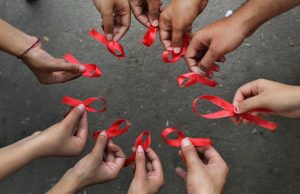 Young people heading off to college face a multitude of unknowns: Am I ready? Will I find friends? How will I handle the course load? Incoming college students living with HIV are faced with additional, complex questions that can make the transition even more difficult: How and where can I access medical care? Who do I have to notify/should I tell people about my HIV status? Will I be discriminated against?
Young people heading off to college face a multitude of unknowns: Am I ready? Will I find friends? How will I handle the course load? Incoming college students living with HIV are faced with additional, complex questions that can make the transition even more difficult: How and where can I access medical care? Who do I have to notify/should I tell people about my HIV status? Will I be discriminated against?
Universities and organizations have begun realizing that resources are needed in order to help college students living with HIV. One such organization is Affordable Colleges Online (AC Online), which has created a resource entitled “Living with HIV in College: Student Support and Awareness” that provides information on HIV and support in areas such as disclosure, discrimination, and accessing treatment. In regard to information on HIV, this resource outlines how HIV can be transmitted through sexual intercourse and sharing needles and/or syringes. The resource also provides specific information that students living with HIV need to know. This includes the fact that a student’s HIV status is private medical information.
The AC Online resource also provides important information about HIV prevention and how to minimize risk for HIV. Effective prevention is critical to ensuring college students who are at a higher risk for contracting HIV do not become infected with HIV. Those who have an increased risk of contracting HIV include gay and bisexual men and transgender women, especially gay and bisexual men of color and transgender women of color, as well as Black women.
As the resource notes, colleges and universities will have their own approach to educating their students about HIV and sexual health. Some colleges and universities have been more proactive than others. Emory University, for example, has taken a step toward supporting effective HIV prevention by providing information about pre-exposure prophylaxis (PrEP) on their Student Health Services webpage. Emory has also created an in-house PrEP clinic so students can utilize PrEP without having to seek resources off-campus. Students at Emory interested in PrEP can follow steps outlined online which include: (1) talking to a provider about PrEP, (2) meeting with the PrEP team and obtaining a prescription, and (3) taking the medication, engaging in safer sex practices, and returning to the clinic every three months.
More resources are necessary to support people living with or affected by HIV so that they can live healthy lives. College students living with HIV need support in areas such as access to medical care and how to treat their HIV status information. With this support, these students can participate and function as any other college student would. College students who are at a higher risk of contracting HIV first need to be aware of their risk and get tested for HIV, but then need to be informed of what they can do to prevent HIV infection. While Emory University provides this information and has created an in-house PrEP clinic on its campus, there is an overall lack of access to this information and services at colleges and universities across the country. Colleges and universities should work to provide relevant HIV information and services to students living with or at risk of contracting HIV and may benefit from the AC Online resource.
This blog post was co-authored by Natalie Dobek, a second-year law student at Georgetown Law and a research assistant at the O’Neill Institute.



